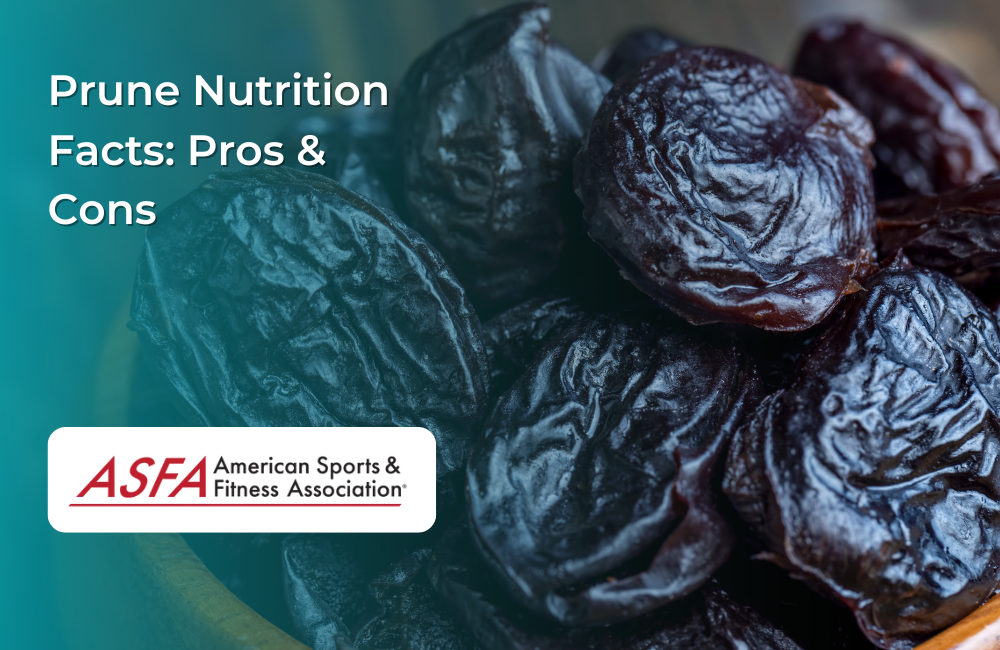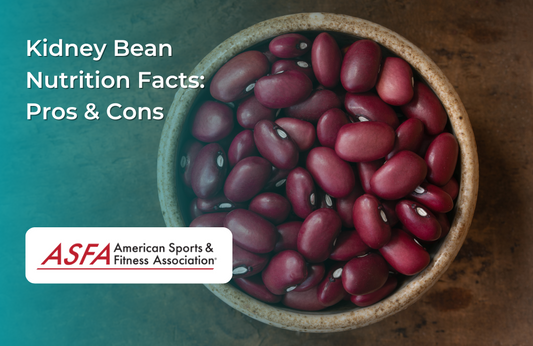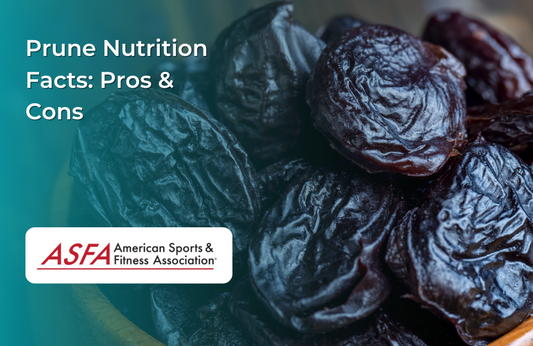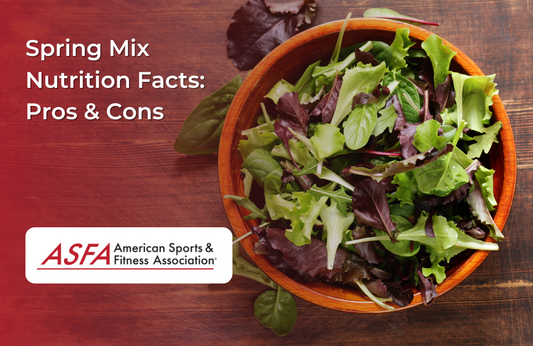Prunes, or dried plums, are a nutrient-dense fruit known for their high fiber content, natural sweetness, and digestive health benefits. They provide essential vitamins, minerals, and antioxidants, making them a healthy addition to a balanced diet. However, their natural sugar content and potential digestive effects should be considered. Understanding the pros and cons of prunes helps in making informed dietary choices.
Prune Nutrition Facts: Pros and Cons of Eating Prunes
What are Prunes? (Definition and Nutrition Facts)
Prunes are essentially dried plums, specifically from the European plum variety. These dried fruits are not only delicious but also packed with nutrients that offer numerous health benefits. Prunes are particularly known for their high dietary fiber content, which aids in digestion and helps maintain a healthy gut. They are also rich in essential vitamins and minerals, such as potassium, which supports heart health, and vitamin K, which is crucial for bone health. A typical 1/4-cup serving of prunes (about 5 prunes) provides 2.8 grams of dietary fiber, 293 milligrams of potassium, and 10% of the Daily Value for vitamins A, C, and E. Including prunes in your diet can be a simple yet effective way to boost your overall health.
Excellent Source of Fiber for Digestive Health
Prunes are high in dietary fiber, which:
-
Promotes regular bowel movements and helps prevent constipation.
-
Supports gut health by feeding beneficial gut bacteria.
Additionally, gut health prunes can help individuals feel fuller for longer, linking digestive health with overall well-being.
Rich in Antioxidants and Nutrients
Prunes contain antioxidants, vitamins, and minerals, including:
-
Vitamin K – Supports bone health and blood clotting.
-
Vitamin A – Promotes eye health and immune function.
-
Potassium – Helps regulate blood pressure and muscle function.
The antioxidants and vitamin K in prunes help prevent bone loss and promote healthy bones, particularly in postmenopausal women.
Supports Heart Health
The fiber, potassium, and antioxidants in prunes promote heart health by helping to:
-
Lower cholesterol levels.
-
Regulate blood pressure.
-
Reduce the risk of cardiovascular disease.
May Support Bone Health and Prevent Bone Loss
Prunes contain vitamin K, boron, and magnesium, which:
-
Help maintain bone density.
-
Reduce the risk of osteoporosis.
Regular consumption of prunes can help prevent bone loss and promote healthy bones, thanks to their high vitamin K content and anti-inflammatory properties.
Naturally Sweet and Low Glycemic Index
Despite their natural sugar content, prunes have a low glycemic index, meaning they:
-
Do not cause rapid blood sugar spikes.
-
Provide a slow-releasing source of energy.
May Aid in Weight Management
Prunes are naturally filling due to their fiber content, helping to curb appetite and reduce overeating.
Prune Juice Benefits
Prune juice is another excellent way to enjoy the health benefits of prunes. This nutrient-rich beverage is a good source of dietary fiber, which helps promote regular bowel movements and ease constipation. Drinking prune juice can also support healthy digestion and provide a natural source of energy. Additionally, prune juice is rich in potassium and iron, with a 1/4-cup serving offering 2% of the Daily Value for iron. The polyphenols in prune juice act as antioxidants, helping to reduce inflammation and protect your cells from damage. Incorporating prune juice into your diet can be a convenient and tasty way to enjoy the benefits of prunes.
Cons of Eating Prunes
High in Natural Sugar and Calories
Prunes contain natural sugars, which:
-
Can contribute to excess calorie intake if overeaten.
-
May not be ideal for individuals closely monitoring sugar intake.
May Cause Digestive Discomfort
Due to their fiber and sorbitol content, eating too many prunes can cause:
-
Bloating, gas, or diarrhea.
-
Digestive sensitivity in some individuals.
Sticky Texture May Affect Dental Health
Prunes have a sticky consistency, which:
-
Can cling to teeth, potentially increasing the risk of cavities.
-
Should be followed by proper oral hygiene.
Potential for Sulfite Sensitivities in Processed Prunes
Some commercially sold prunes contain added sulfites, which:
-
Help preserve freshness.
-
May trigger sensitivities or allergic reactions in some individuals.
Tips for Incorporating Prunes into Your Diet
Incorporating prunes into your diet can be both easy and delicious. Here are some tips to help you get started:
-
Start with a small serving size: If you’re new to eating prunes, begin with 1-2 prunes per day and gradually increase as needed.
-
Add prunes to your oatmeal or yogurt: Prunes can be a tasty and healthy addition to your breakfast oatmeal or yogurt.
-
Use prunes in baking: Prunes can serve as a natural sweetener and add moisture and flavor to baked goods.
-
Make a prune smoothie: Blend prunes with your favorite fruits and milk for a nutritious and delicious smoothie.
By following these tips, you can easily incorporate the health benefits of prunes into your daily routine.
Adding Prunes to Your Meals
Prunes are incredibly versatile and can be added to a variety of meals to boost their nutritional value. Here are some creative ideas:
-
Add prunes to your salad: Prunes can be a delightful addition to green salads, fruit salads, and grain salads.
-
Use prunes in savory dishes: Prunes can enhance the flavor and moisture of savory dishes such as stews, soups, and braises.
-
Make a prune chutney: Cook prunes with spices and vinegar to create a delicious chutney that pairs well with grilled meats or can be used as a dip.
-
Add prunes to your breakfast cereal: Prunes can be a tasty and healthy addition to breakfast cereals like oatmeal or granola.
By incorporating prunes into your meals, you can enjoy their health benefits in a variety of delicious ways.
Conclusion
Prunes are a nutrient-rich, fiber-packed fruit with various potential health benefits, including supporting digestion, heart health, and bone strength. However, their natural sugar content and potential digestive effects require mindful consumption. Eating moderate portions of prunes as part of a balanced diet ensures their health benefits while avoiding potential drawbacks.
FAQs
How many prunes should I eat per day?
A serving of 3-5 prunes per day is typically beneficial for digestion and overall health.
Can prunes help with constipation?
Yes, prunes are a natural laxative due to their fiber and sorbitol content.
Are prunes good for diabetics?
Yes, in moderation. Prunes have a low glycemic index and fiber, helping to regulate blood sugar.
Should prunes be eaten with or without added preservatives?
Choosing unsulfured prunes is best to avoid sulfite sensitivities.
What is the best way to eat prunes?
Prunes can be eaten alone as a snack, added to oatmeal, blended into smoothies, or used in baking for natural sweetness.
Fresh plums, a type of stone fruit, can also be enjoyed in various ways, offering a juicy and nutritious alternative.





